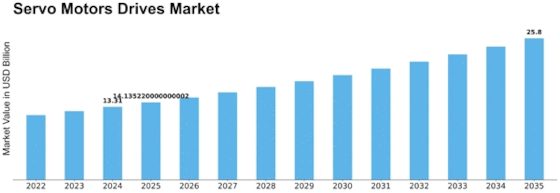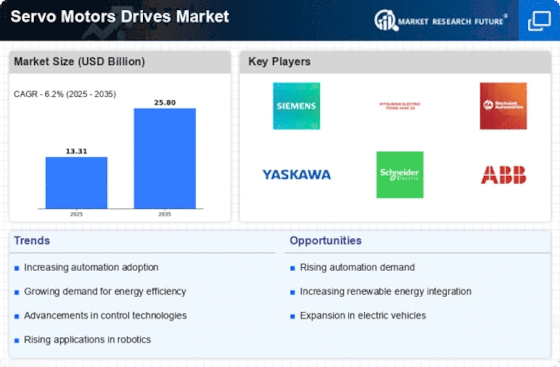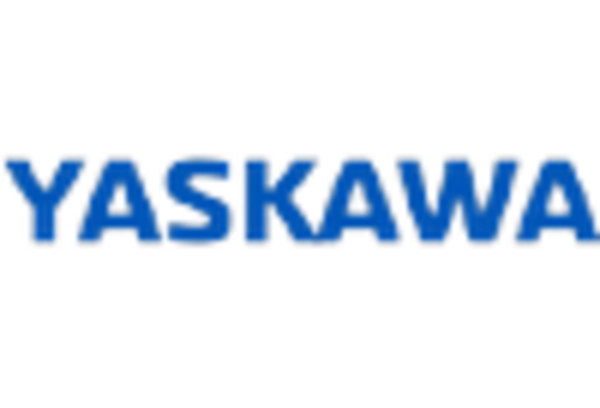Servo Motors Drives Size
Servo Motors Drives Market Growth Projections and Opportunities
The Servo Motors Drives Market is influenced by a myriad of market factors that shape its growth and trajectory. One of the key drivers propelling the market is the increasing demand for precision and efficiency in various industries. Servo motors and drives are crucial components in automation systems, offering precise control and positioning capabilities. As industries strive for higher levels of automation and accuracy, the demand for servo motors drives continues to rise.
Another significant factor contributing to the market's growth is the expanding scope of applications across diverse industries. Servo motors drives find applications in industries ranging from manufacturing and automotive to healthcare and robotics. This versatility ensures a steady market demand as different sectors incorporate these advanced motion control systems to enhance their processes and productivity.
Technological advancements play a pivotal role in shaping the servo motors drives market. Continuous innovations in motor design, control algorithms, and communication protocols contribute to the improved performance and reliability of servo systems. These technological advancements not only cater to the current demands of industries but also pave the way for future applications, fostering sustained market growth.
Furthermore, the emphasis on energy efficiency is a critical factor influencing the servo motors drives market. With a growing focus on sustainability and reducing energy consumption, industries are increasingly adopting energy-efficient servo systems. These systems not only contribute to environmental conservation but also result in cost savings for end-users, making them an attractive choice in the market.
Global economic trends and industrialization also impact the servo motors drives market. The expansion of manufacturing activities in emerging economies, coupled with the modernization of existing industries, contributes to the increased adoption of servo systems. Additionally, economic stability and growth positively influence investments in automation technologies, further fueling the demand for servo motors and drives.
Competitive dynamics and market consolidation are noteworthy factors shaping the servo motors drives market. The presence of key players in the market fosters healthy competition, driving continuous innovation and product development. Mergers and acquisitions within the industry also influence market dynamics, as companies seek to strengthen their market position and expand their product portfolios.
Moreover, regulatory initiatives and standards play a role in defining the market landscape. Compliance with industry regulations and adherence to quality standards are crucial for manufacturers to gain market acceptance. As industries face stricter regulations and standards, the demand for servo motors drives that meet these requirements is likely to increase, shaping the market accordingly.
Despite the positive factors driving the servo motors drives market, challenges such as high initial costs and the need for skilled personnel for installation and maintenance can impede growth. However, as technology advances and becomes more accessible, these challenges are gradually being addressed, making servo systems more feasible for a broader range of industries.



















Leave a Comment